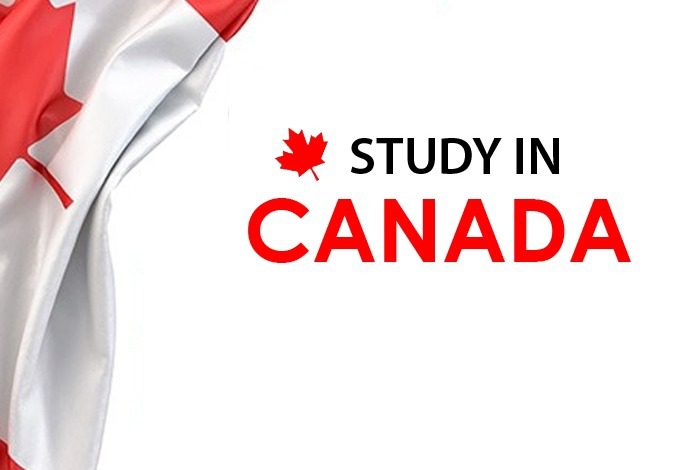Studying in Canada is a dream for many international students due to its high-quality education system, multicultural environment, and abundant opportunities.
While the process of studying in a foreign country can be daunting, this article will provide you with an in-depth guide on how to study in Canada from any country.
From choosing the right institution and program to understanding the application process and securing a student visa, this article will equip you with the necessary information to pursue your educational aspirations in Canada.
READ THIS: How to Live and Work in Canada
How to Study in Canada from Any Country

Researching Canadian Institutions and Programs
Explore University Rankings and Accreditation:
a. Familiarize yourself with reputable university rankings such as the QS World University Rankings or the Times Higher Education World University Rankings.
b. Ensure that the institution and program you choose are accredited by relevant Canadian authorities.
Consider Program Suitability:
a. Identify your area of interest and research Canadian institutions that offer programs aligned with your academic and career goals.
b. Evaluate the program’s curriculum, faculty, and research opportunities to ensure a good fit.
Assess Tuition Fees and Scholarships:
a. Research the tuition fees of various Canadian institutions and compare them to your budget.
b. Explore scholarship opportunities offered by Canadian universities, government bodies, and international organizations to help finance your education.
International students choose to study in Canada for many reasons. Here are some of the most important reasons:
- The quality of education is one of the best in the world and the universities and colleges are high on the world level.
- Tuition is cheaper than in other countries like USA or UK.
- For students looking to gain work experience in Canada, the ability to work and study is a huge advantage; This work experience ultimately contributes to becoming a permanent resident.
- Canada is a hospitable country with a diverse culture. Living in Canada gives students a sense of security and recognition.
- If they meet the eligibility criteria, international students can apply for immigration to Canada under the Express Entry program after graduation.
Number of international students in Canada
Hundreds of thousands of international students from 190 countries study in Canada. During the 2019-2020 academic year, Canada has at least 650,000 international students enrolled in schools across the country.
India, China, Vietnam, France, South Korea and Iran are the top five countries sending international students to Canada. According to the current data, India has international students and Canada has 180,275 students in 2020.
Tuition fees in Canada
In Canada, tuition fees vary by institution and study program. Cost of living, tuition, health insurance (in some areas), and transportation are also factors to consider.
International students contributed more than $21 billion to the Canadian economy in one year, according to a study by the Canadian Center for International Education entitled “International Students are the Economic Engine for Canada” (2018). In 2021-2022, this number is expected to more than double.
High school fees range from $12,000 to $30,000 per year, while graduate school can cost up to $18,000 per year. British Columbia, Ontario and Quebec have the highest tuition fees, and Vancouver, Toronto and Montreal are the most expensive cities for international students.
Cheapest Universities in Canada
In Canada, there are many universities with low tuition fees. Here are the cheapest universities in Canada:
- Brandon University – Annual tuition ranges from $4,000 to $8,000.
- Concordia University of Alberta – Annual tuition fees range from $2,000 to $6,000.
- Memorial University of Newfoundland – annual tuition ranging from $4,000 to $8,000.
- University of Manitoba – Annual tuition fees range between $5,000 and $10,000.
- Athabasca University – Annual tuition fees range between $3,000 and $7,000. Students can also choose to learn at their own pace.
- The University of Northern British Columbia (UNBC) has annual tuition fees ranging from $4,000 to $6,000.
- Thompson Rivers University – annual tuition ranging from $4,000 to $7,000 (international students).
- Laurentian University – Annual tuition fees range from $5,000 to $7,000. ix. Cape Breton University – Annual tuition fees range between $6,000 and $8,000.

Cheap Colleges in Canada
- Bow Valley College – annual tuition from $5,000 to $7,000 (international students).
- Red River College – annual tuition is between $6,000 and $8,000 (international students).
- Vancouver Community College – Annual tuition is between $4,000 and $6,000. (international students).
- Niagara College – Annual tuition ranges from $6,000 to $8,000. (Canadian citizens and permanent residents).
- Sheridan College – Annual tuition ranges from $7,500 to $11,000.
- George Brown College – Annual tuition fees range from $8,000 to $15,000 at George Brown College (international students)
- Selkirk College – annual tuition ranging from $4000 to $7000 (domestic and international students).
ALSO READ THIS:
Farming Jobs In Canada For Foreigners- APPLY NOW
How to Live and Work in Canada
Unskilled Jobs in Canada with Visa Sponsorship – APPLY NOW
Storekeeper Jobs in Canada For Foreigners- APPLY NOW
Guide on How to Get a Job in Canada for Foreigners
Financing Your Education
- Explore Scholarship Opportunities: a. Research scholarships offered by the Canadian government, universities, and external organizations. b. Check eligibility criteria and application deadlines for each scholarship.
- Consider Work-Study Programs: a. Look for universities offering work-study programs that allow you to work part-time on campus while studying. b. Determine if you are eligible for employment opportunities off-campus during your studies.
- Investigate Financial Aid Options: a. Consult with the financial aid office of your chosen institution to explore potential grants, loans, or bursaries available to international students.
READ THIS: Step by Step Guide to Getting International Student Scholarship
Get funding for your studies in Canada
International students can pay for their education in Canada in different ways. Here are the top five funding options for international students in Canada:
i. International Student Scholarships – awarded by the student’s home government, the Canadian government, schools, non-profit and private organizations and sometimes individuals.
ii. Student Loans – Student loans can be awarded to Canadian students and international students.
iii. During the summer and other school holidays, work-study programs, part-time or full-time work are available (if you have a work permit).
iv. Personal support from a Canadian institution or company covers all your tuition and living expenses while you are studying there.
v. Canadian Parents – Some students may receive financial aid from parents who live in Canada. Requirements to study in Canada
International students must meet certain requirements to apply for admission, including:
I. Meet the entry requirements of the school you want to apply to – a minimum score in language skills (IELTS, CELPIP or TOEFL, depending on the preference of the school).
ii. Proof of sufficient resources to cover tuition and living expenses – you must prove that you have the funds to pay for your education and live in Canada.
iii. Passport, visa (if applicable), medical examination and Police Character Certificate (PCC).
iv. A letter of acceptance from a Canadian institution or school.
Application Process
- Fulfill Admission Requirements: a. Review the admission requirements for your chosen program, including academic prerequisites, language proficiency tests (e.g., IELTS, TOEFL), and standardized exams (e.g., SAT, ACT, GRE).
- Prepare Application Documents: a. Gather the necessary documents, such as transcripts, letters of recommendation, personal statements, and a valid passport. b. Ensure that all documents are accurately translated into English or French, if required.
- Submit Online Applications: a. Apply directly through the university’s online application portal. b. Pay attention to application deadlines and submit your application well in advance.
5 Steps to study in Canada
International students must follow several steps to apply for admission to Canada, including:
1. Find the right school
Find and apply to Canadian schools or colleges based on your academic interests, career goals, financial constraints and your country. Tuition fees vary depending on the program of study (depending on whether it is an undergraduate, graduate or doctoral degree).
You can use the Canadian government-approved school tool to find schools in Canada. You can use the tool to search for schools and programs, as well as check fees and admissions based on your country.
The Government of Canada maintains an online database of all Canadian institutions and colleges that offer programs in English and French. You can also hire an academic advisor to help international students find the right school based on their academic interests, career goals, financial concerns, and country of origin.
2. Check the admission requirements
The next step is to review the entry requirements for the company you want to attend. Each company has its own requirements, so make sure you meet them all before applying.
3. Collect the required documents
Gather and prepare all the necessary documents for your application once you meet the school’s admission criteria. This may include the following:
- Photo of your passport
- Evidence of financial resources (bank statements, stock market letters, etc.);
- Results of language proficiency tests (IELTS, CELPIP, TOEFL);
- Letter of acceptance from a school or institution in Canada; And
- Curriculum Vitae/CV
4. Apply for Admission
Complete and submit your application online once you have all the required documents. To avoid mistakes, double check your application before submitting it.
You may be invited to participate in a virtual interview with a representative of a Canadian institution or institution, but this is rare.
Depending on the school, a decision on your admission status can take anywhere from a few weeks to several months after you submit your application.
5. Apply for a student permit if you qualify
You will need to apply for a student permit and study visa if you have been accepted to a Canadian school or university. You can stay in Canada and study full-time at an approved high school with student rights.
On the other hand, a study permit is a document that Canadian visa authorities attach to your passport. How to apply for a visa to study in Canada
International students must first obtain a student visa to study in Canada. A student visa is not difficult to obtain, but it does require documentation and processing. You will need your passport, proof of acceptance from a Canadian institution, financial documents proving that you can study and live in Canada, and a letter explaining why you want to study in Canada.
An important document for getting your student visa is an acceptance letter from a Canadian institution. When you are looking for admission to a Canadian school or college, be sure to get your letter of admission, which you can easily download from their website.
READ THIS: Guide on How to Get a Job in Canada for Foreigners
Student Visa Process
Student visa in Canada requirements
This will make applying for your student visa easier. Here are the steps you need to follow on how to apply student visa in Canada.
Understand Student Visa Requirements:
a. Determine if you require a student visa or study permit to study in Canada.
b. Check the official website of Immigration, Refugees and Citizenship Canada (IRCC) for up-to-date information on visa requirements and application procedures.
Gather Required Documents:
a. Prepare the necessary documents, including a letter of acceptance from a recognized Canadian institution, proof of financial support, and a valid passport.
b. Obtain a medical examination, if required.
Submit Visa Application:
a. Apply for a student visa or study permit online through the IRCC website.
b. Pay the application fee and provide the required supporting documents.
c. Track the progress of your application and respond to any requests for additional information.
Once your student visa is approved, you can book your flight and plan your trip to Canada. If necessary, IRCC may reject your student visa application or request additional information.
With some exceptions, such as studying English or French for a short period of time (six months), completing an exchange program (one year) or participating in a research project, your student visa is valid for the duration of your education.
You must apply for an extension if you want to stay longer than your student visa allows. You will need a letter from the school confirming that you are still enrolled and in good standing, as well as proof of income that shows you will be able to support yourself at this time.
Minimum bank balance for Canada student visa
A student visa for Canada (or an extension) costs CAN$150. The application process takes an average of four to six weeks, but it can take longer during peak periods.
Conclusion:
Studying in Canada offers a world-class education and a multicultural experience for international students.
By following this comprehensive guide, how to study in Canada from any Country, you can navigate the process of studying in Canada with confidence.
Remember to thoroughly research Canadian institutions and programs, understand the application process, explore financing options, and adhere.









